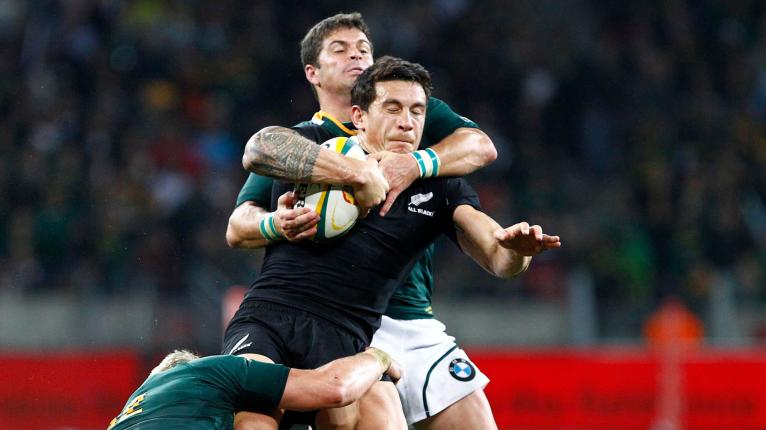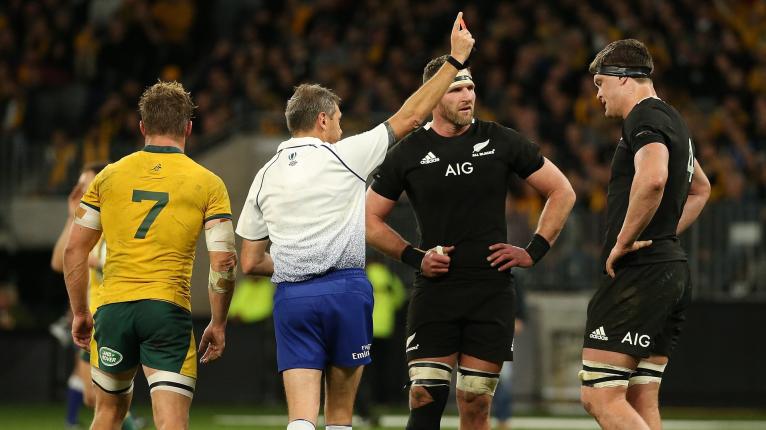The Wallabies might not realise it, but they played a critical role in helping the All Blacks win their back-to-back World Cup titles in 2011 and 2015.
The All Blacks defeated the Wallabies in the 2011 semi-final and the 2015 final, but the trump card that Australia handed its old foe was dealt long before either tournament kicked off.
In both 2011 and 2015, the Wallabies inflicted shock defeats on the All Blacks in the Bledisloe Cup. And in both instances, those losses had a profound impact on re-setting the All Blacks by giving them the jolt they needed to click back into form and tighten their approach.
The victory in 2011 was particularly significant as it meant the All Blacks headed into their own World Cup on the back of two consecutive defeats and not a shred of complacency.
Having suffered just the one defeat in 2010, the All Blacks were in cruise control heading into the World Cup – until, that is, they went to South Africa without a handful of superstars who they wanted to rest before the tournament and lost to the Boks.

When the cavalry joined the team in Australia a week later, there was an element of raggedness about the All Blacks and they lost 25-20.
It left the team a little shocked but heightened their motivation and focus to sort everything out before their next game, which was the opening match of the World Cup.
That defeat in Brisbane also paved the way for Richard Kahui to be injected into the team on the left wing – a selection that proved inspirational and transformational and the All Blacks insisted that losing to the Wallabies was the best way for them to prepare.
In 2015, the situation was largely similar. The All Blacks had been in imperious form between 2012 and 2014, but were a little patchy in their first Tests of 2015, squeezing past the Boks and then the Pumas.
A few of their senior players hadn’t really found their groove, though, and the Wallabies outfought and out thought the All Blacks in Sydney to record a 27-19 victory.
Is it the case that the All Blacks will arrive in France a better prepared, more focused and deadly opponent if they suffer some defeats in the last of the three Tests they will play before the tournament kicks off?
Again, it was a telling loss for the All Blacks as it made them realise that the rest of the world was on their tail and that they had to be at the top of their game to win against everyone.
The timing was good because it forced the All Blacks to ask plenty of questions about themselves and a few seasoned professionals had to dig deep to produce big performances to hold on to their places in the team.
Both the All Blacks’ last two World Cup triumphs had losses in Australia backed into them, which brings into question whether some kind of adversity is a necessary part of a successful formula?
Is it the case that the All Blacks will arrive in France a better prepared, more focused and deadly opponent if they suffer a defeat in the last of the two Tests they will play before the tournament kicks off?
It’s not easy to know, because the picture is mixed in terms of how useful adversity is in the build-up to the tournament.

World Cup years are a funny business for the Southern Hemisphere sides – they have to ditch the July tests and truncate the Rugby Championship and Bledisloe series to get it all played in time.
Typically, the All Blacks will play five tests before they head to the World Cup and they have tended to use these games to experiment a little with their selections to work out who they are going to take to the tournament and who they are going to leave behind.
The two factors of limited game time and a need to find answers about certain players have tended to combine badly for the All Blacks, who – until the current season- hadn’t won either the Tri-Nations or Rugby Championship (as it became in 2012) in a World Cup year since 2003.
And it is always Australia who have been their nemesis in these World Cup years. The Wallabies won in Melbourne in 2007, in Brisbane in 2011, Sydney 2015 and Perth in 2019.
So on the question of how much adversity the All Blacks need in the build-up to the World Cup, there is no one-size-fits-all answer.
It seems that All Blacks coach Ian Foster isn’t of the view that his team needs any more adversity between now and the World Cup.
Adversity helped them in 2011 and 2015, but it didn’t in 2007 or 2019. In 2007 the Wallabies exposed all sorts of All Blacks frailties in Melbourne, but the coaches didn’t pick up on how deep the problems ran.
And in 2019, a red card to Scott Barrett was a factor in the All Blacks taking quite the pounding in Perth, where they were passive and lacked discipline.
A few months later, the All Blacks were bundled out of the World Cup semi-final after producing – surprise, surprise – a passive and ill-disciplined performance against England.
It seems that All Blacks coach Ian Foster isn’t of the view that his team needs any more adversity between now and the World Cup.
He obviously feels his team has suffered enough defeats and been rocked around for the last few years to have already grown tremendously from adversity.

Last year they lost four of their first six Tests and were in enough chaos to see two coaches get the axe and strong public calls for Foster to follow suit.
But here they are now, sitting on a 10-game unbeaten run, slowly building their confidence and cohesion. Far from hoping to hit one last iceberg before they head to France, Foster has stated clearly that he feels his team would be best served by setting their sights on some more victories ahead of the World Cup.
“We want to do both,” he said when asked if he would be willing to sacrifice winning the Rugby Championship to win the World Cup.
“I think since 2011 we haven’t won the Rugby Championship in World Cup year. They’ve been the only years I haven’t won it since I’ve been involved. If you look at where this team is at, there have been a lot of things happening. Last year we had a bit of adversity, we got tight, and we’re actually craving as many big games as we can get at the moment.
“We want to go in fully loaded to this Rugby Championship. I think it’s important for us to get back up to speed really quickly, and get our game right. The work that Jason [Ryan] is doing in our forwards, we need to re-establish that level very quickly, and on the attack and defence side we want to set the level we want to go into.
Despite opening their 2023 season with three impressive wins against the Pumas, Springboks and Wallabies, the All Blacks have steadfastly refused to get carried away with how they are tracking.
“The World Cup day one is pretty big and we want to be ready.”
The All Blacks now have both the Rugby Championship and the Bledisloe Cup in the bag so while a loss to the Wallabies in Dunedin wouldn’t be catastrophic, it would still likely set them back more than it would galvanise them.
Which is why, despite opening their 2023 season with three impressive wins against the Pumas, Springboks and Wallabies, the All Blacks have steadfastly refused to get carried away with how they are tracking.
The public and media are hyping them up in a way they previously haven’t in this World Cup cycle, but the rhetoric form the team has been to downplay their victories and remain focused on each game as it comes.
“We’ve won two Tests in a row,” forwards coach Jason Ryan said ahead of the first Bledisloe Cup clash against the Wallabies in Melbourne.

“You can’t hide from that. One has been away from home and one has been against the world champions. We’re confident, but we’re not arrogant. We keep our feet on the ground and constantly strive to be better.
“[Mount Smart] was a step forward, but it’s not something we want to get carried away with. We had good momentum and carry and in the clean at the breakdown we were pretty sharp. But we still gave away a couple of soft scrum penalties and a soft maul try as well. That’s not where we want to be.
“By no means are we getting comfortable where we’re at. We’ve got to strive to be better.”
The Wallabies it seems, certainly won’t be doing the All Blacks a World Cup favour this time round should they again deny New Zealand an unbeaten start to the year in Dunedin.



Rugby center of gravity has moved up North so the AB will not be tested until the first game. Win or lose that game does nothing to their chances but their mental health. it would be better if they lose so they can determine how much they have left how quick they can recover IMHO.
I understand this article is taking an historical look at longitudinal data across a number of world cups, however I think it is not relevant to the All Blacks this year. They have been largely dominated by top teams in the interim cycle this time round whereas previously the opposite was true. If anyone thinks they are going to rock up to Stade de France complacent then I think they are probably over thinking things.
What a load of cockypot and paranoia. NZ will either win the RWC or not, whether they lose to Australia or not. Games before a RWC have no effect on how they will play during the RWC. The media could do with just keeping their big mouths shut.
Abs have already gone through so many trials & heart breaks last season with many first ever historical losses at home & away so that in itself is very motivating for the team & they look hungry & determined to not only rectify the wrongs they made but play to their potential & they are building unbelievable depth & turning that talent into a very dangerous & devastating team & are peaking just at the right time!
The All Blacks last won the Tri-Nations/Rugby Championship in a world cup year in 2007, not 2003.